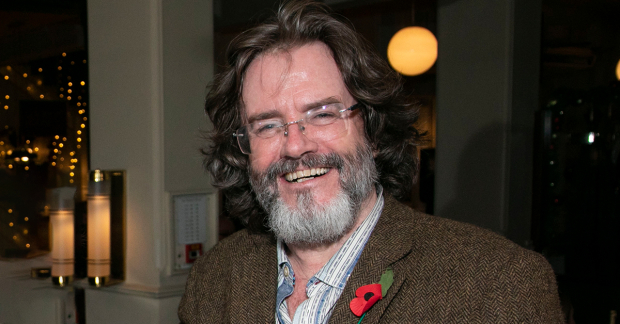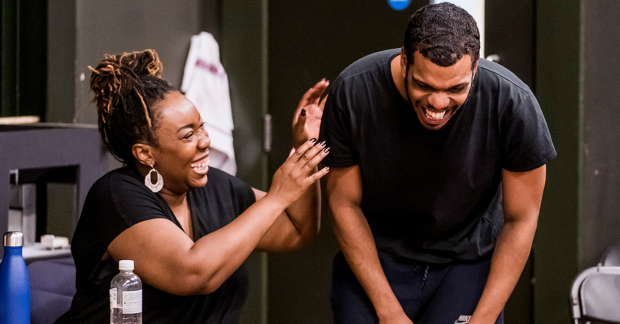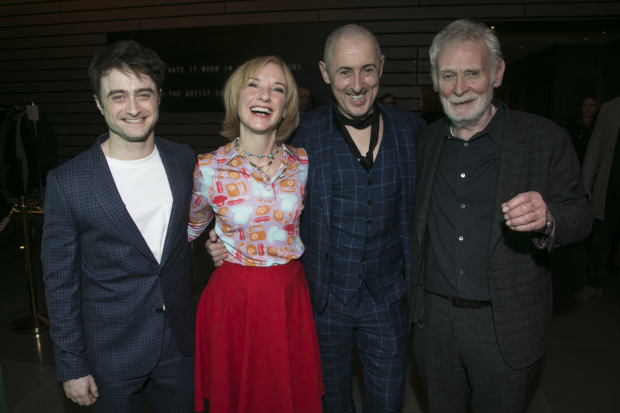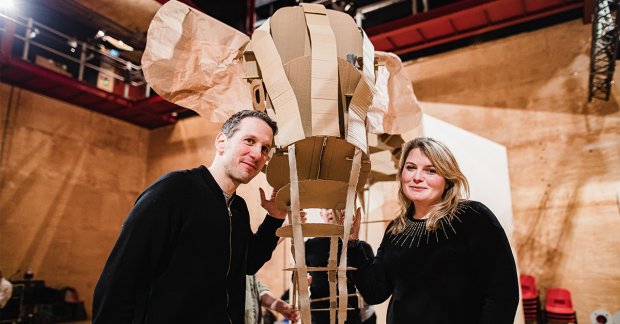Review: The Gift (Theatre Royal Stratford East and tour)
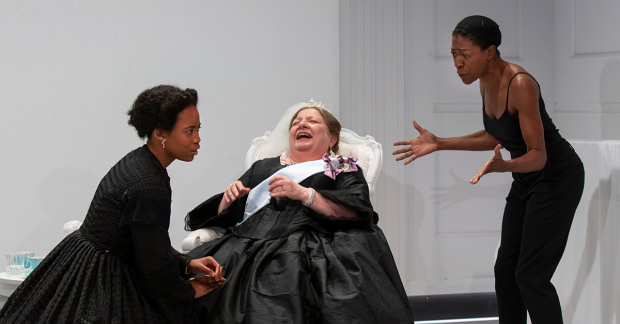
© Ellie Kurttz
Another successful chapter in Eclipse Theatre's Revolution Mix, a movement dedicated to placing black British experience at the heart of drama, The Gift is Bruntwood prize-winning playwright Janice Okoh's latest offering. Directed by Eclipse's founder, chief executive and artistic director Dawn Walton, the play uses the real-life story of Sarah Bonetta Davies as a starting point to explore themes of imperialism and cross-racial adoption. Davies was a West African princess who became Queen Victoria's goddaughter and the play begins in the monarch's era, depicting Sarah's final moments in England before moving back to Africa.
The narrative shifts forward to the current day and focuses on another Sarah, a middle-class black woman, and her family meeting their new white neighbours in a Cheshire village. These two worlds and generations eventually collide, as the namesakes have afternoon tea with Queen Victoria herself. If this sounds slightly confusing and the type of idea that couldn't work on stage then those fears are allayed by Walton's direction – the play's movements through time and space are clear and skillfully managed.
This is an excruciatingly well-written play as, particularly with the modern-day scene, Okoh brilliantly skewers contemporary, white views surrounding race. Claims from neighbours Harriet and Ben, played by Rebecca Charles and Richard Teverson respectively, that "they don't see colour" is the type of faux-woke statement that some might argue is well-meaning but remains problematic. Ben as a character feels frighteningly close to the nose, the type of incarnation that feels inevitable once we as a society opt to give the likes of Jeremy Clarkson 20 seasons worth of primetime television to voice his bigoted opinions. Despite the serious issues that Okoh explores, humour is skillfully woven throughout the piece.
For all the superb dialogue, it is frustrating that structural problems block this from being a completely cohesive piece of theatre. It seems strange for example that the two-and-a-half hour running time should be split with the final 25 minutes arriving after an interval. The play really begins to intensify during the modern-day scene and it, therefore, seemed a peculiar place for a break – the electric energy on stage saps away and never truly recovers. The final scene, unfortunately, feels like something tagged on as opposed to being the climax of the production.
That moment is without question the end of the first act, watching an exhausted Sarah, played by Donna Berlin, strip naked with her back to the audience and walk off stage through a series of concentric squares. Credit must go to Simon Kenny and Johanna Town (design and lighting) here for such a visually striking moment and a perfect way to bridge to the next scene's tea with Queen Victoria. The script, generally so deft and nuanced, regrettably slips a little in the final stages. Okoh's razor sharp observations about white prejudice become a little forced by comparison with the slickness of what has preceded and the last 25 minutes feels blunted as a result.
The entire cast turn in solid performances but it is Berlin who steals the show. Excellent throughout, she shines as contemporary Sarah and also injects comedy and life into the early Victorian scenes as the unrefined maid Aggie. Without her presence the opening could have been left a little flat. Undoubtedly however, this is an evening for Okoh – what a talented writer. It will be exciting to see where her next step takes her.




